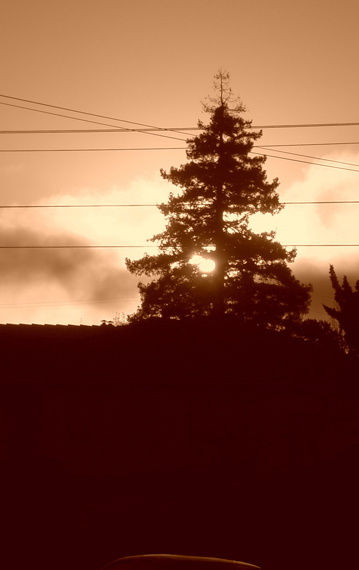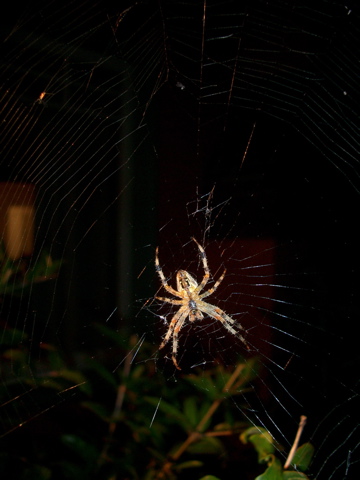A day late and almost moreso, let me say "happy birthday" to one of the billions of our fellow earthlings who can no longer appreciate it. But unlike nearly all of those, this one — Brian O’Nolan/Flann O’Brien/Myles na gCopaleen (note to judy b: that gC combo is, for once, not a typo) — has occasioned uncounted hours of literary fun and amazement to uncounted masses, but most importantly to me and my friends.
He — Brian O’Nolan, who later became those other fellows — was born 94 years ago yesterday in Ireland somewhere. Through the usual peculiar circumstances of genius and screwed-up upbringing and abusive strait-laced education, he produced many thousands, or hundreds of thousands of pleasing words. In his mid-20s, he produced a novel that was a send-up of Joyce, modernist fiction and literary experimentation, Irish mythology and classic poetry, and, probably, people like me. The novel is called "At Swim-Two-Birds," and has gained enough currency that, well, it’s still in print. His second novel, "The Third Policeman," has built enough of a reputation that no less than the University of California at Berkeley, my current and no doubt temporary paycheck provider, has placed it more than once on its unofficial summer reading list. (For O’Nolan/O’Brien’s part, he reportedly became so upset by early rejection of this manuscript that, in reflecting on the nature of his story, he attempted to destroy it as sacrilegious).
There will be a centennial in six years’ time, with many tributes to one of the half- (or two-thirds-) recognized geniuses of 20th century letters. Until then, you might entertain yourself with — with what? With this short passage from "At Swim-Two-Birds":
"… The stout was of superior quality, soft against the tongue but sharp upon the orifice of the throat, softly efficient in its magical circulation through the conduits of the body. Half to myself, I said:
Do not let us forget that I have to buy “Die Harzreise.” Do not let us forget that.
“Harzreise,” said Brinsley. There is a house in Dalkey called Heartrise.
Brinsley then put his dark chin on the cup of a palm and leaned in thought on the counter, overlooking his drink, gazing beyond the frontier of the world.
What about another jar? said Kelly.
Ah, Lesbia, said Brinsley. The finest thing I ever wrote, How many kisses, Lesbia, you ask would serve to sate this hungry love of mine?–As many as the Libyan sands that bask along Cyrene’s shore where pine-trees wave, where burning Jupiter’s untended shrine lies near to old King Battus’ sacred grave:
Three stouts, called Kelly.
Let them be endless as the stars at night, that stare upon the lovers in a ditch–so often would love-crazed Catullus bite your burning lips, that prying eyes should not have power to count, nor evil tongues bewitch, the frenzied kisses that you gave and got.
Before we die of thirst, called Kelly, will you bring us three more stouts. God, he said to me, it’s in the desert you’d think we were.
That’s good stuff, you know, I said to Brinsley. A picture came before my mind of the lovers at their hedge-pleasure in the pale starlight, no sound from them, his fierce mouth burying into hers.
Bloody good stuff, I said.
Kelly, invisible to my left, made a slapping noise.
The best I ever drank, he said.
As I exchanged an eye-message with Brinsley, a wheezing beggar inserted his person at my side and said:
Buy a scapular or a stud, Sir.
This interruption I did not understand. Afterwards, near Lad Lane police station a small man in black fell in with us and tapping me often about the chest, talked to me earnestly on the subject of Rousseau, a member of the French nation. He was animated, his pale features striking in the starlight and his voice going up and falling in the lilt of his argumentum. I did not understand his talk and was personally unacquainted with him. But Kelly was taking in all he said, for he stood near him, his taller head inclined in an attitude of close attention. Kelly then made a low noise and opened his mouth and covered the small man from shoulder to knee with a coating of unpleasant buff-colored puke. Many other things happened on that night now imperfectly recorded in my memory but that incident is still very clear to me in my mind. Afterwards the small man was some distance from us in the lane, shaking his divested coat and rubbing it along the wall. He is a little man that the name of Rousseau will always recall to me. …"


